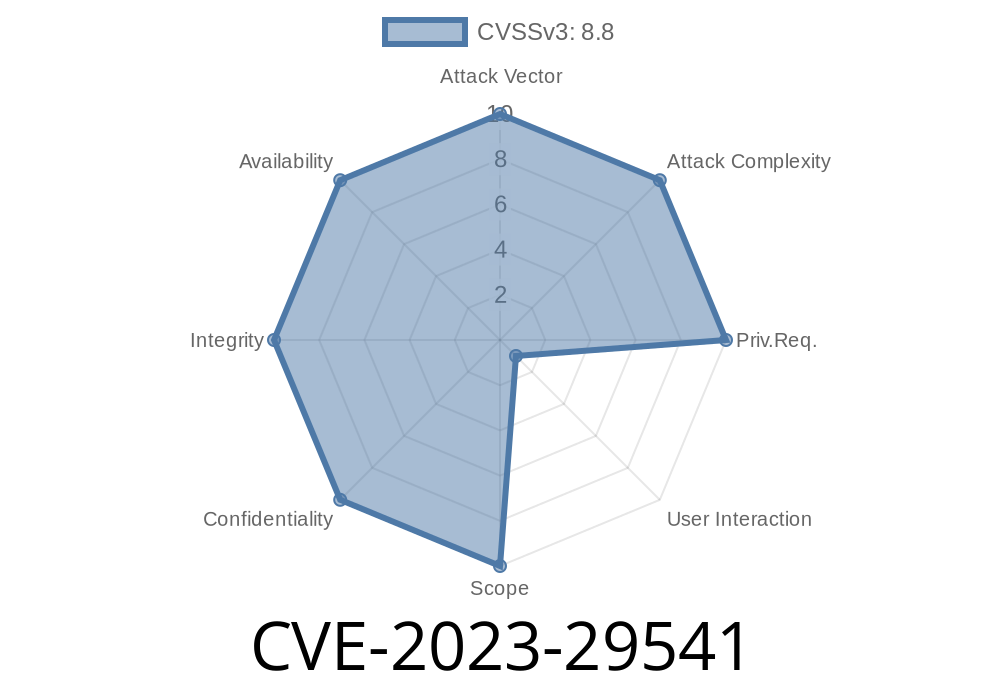On April 11, 2023, Mozilla issued a security advisory about a serious vulnerability in Firefox and other Mozilla products on Linux. The issue, officially tracked as CVE-2023-29541, highlights how hackers could use a seemingly harmless .desktop file to run malicious commands on your computer—just by tricking you into downloading a file in Firefox.
This post explains what went wrong, exactly how the attack works, and what you can do to stay safe if you're using Linux. Let's break it down in everyday language.
What Exactly Is The CVE-2023-29541 Vulnerability?
A .desktop file is a type of launcher file commonly used in Linux. When you double-click a .desktop file (even one you downloaded), it can open applications—*or* run commands.
The Issue:
Firefox for Linux did not correctly handle downloads of these .desktop files. If a user downloaded one of these with Firefox, the file could appear as a normal, safe shortcut on the Desktop or in the Downloads folder. But if you clicked it, you could be running code designed by an attacker—potentially giving a hacker control over your Linux machine.
> *Important: This bug did not affect Windows or macOS, and not every Linux distribution was vulnerable. But if yours was, attackers could get in with just a downloaded file.*
Firefox for Android: Versions < 112
If you use one of these on Linux (especially with a graphical desktop like GNOME or KDE), this concerns you.
The user sees the icon and double-clicks it
Suddenly, the attacker’s code runs—this could be almost anything: stealing your files, installing malware, or opening a backdoor shell.
Example Malicious .desktop File
Below is an example .desktop file that would open a terminal and run a scary command (like deleting files):
[Desktop Entry]
Name=Update Driver
Comment=Click to update your system drivers
Exec=rm -rf ~/
Icon=system-software-update
Type=Application
Terminal=false
> Auto-running rm -rf ~/ would erase your entire user directory. An attacker could do anything here.
Worse: The real exploit is *social engineering*—the attacker names the file something you’d trust: "System Update.desktop," "ReadMe.desktop," etc.
Why Was This Allowed To Happen?
The heart of the problem was that Firefox did not strip the executable bit from .desktop files, nor did it warn users that these files could be dangerous—unlike with .exe on Windows.
From the Mozilla bug report
> _"Firefox on (some) Linux distributions can result in downloaded .desktop files inheriting the x (executable) bit if they were marked so on the webserver."_
> _"If a user then clicks on the downloaded file, it may run arbitrary malicious code..."_
Find the file in your Downloads or Desktop folder, and double-click.
If your desktop environment doesn’t offer warnings, you just ran an attacker’s code.
References and Further Reading
- Mozilla Security Advisory MFSA-2023-13
- Bugzilla Report #1824455
- MITRE CVE Entry
What Should You Do?
Upgrade Firefox, Thunderbird, and any Mozilla products immediately.
Any version 112 or later (or ESR 102.10+) are safe from this vulnerability.
Conclusion
CVE-2023-29541 is a great example of how a simple file type, mis-handled by a browser, can open the door to dangerous attacks on Linux. It's also a good reminder that Linux users can get tricked too—especially when social engineering and software bugs combine.
Stay safe: keep your applications updated, and think twice before trusting downloads—even if they look innocent.
*Feel free to share this guide to help others understand this important vulnerability!*
Timeline
Published on: 06/02/2023 17:15:00 UTC
Last modified on: 06/09/2023 14:13:00 UTC
